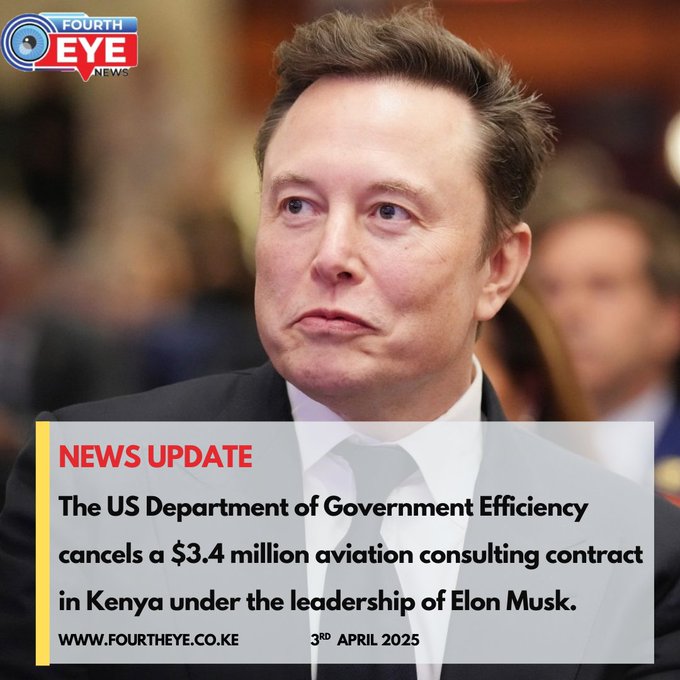Kenya Loses Major US Contracts as Musk’s Efficiency Drive Hits Hard
NAIROBI, Kenya — Kenya just took a financial hit, thanks to the United States Department of Government Efficiency (DOGE), led by none other than billionaire Elon Musk.
In its latest round of cost-cutting measures, DOGE has axed two key contracts in Kenya—moves that will see the country lose over Sh10 billion in potential investments.
Aviation Contract Grounded
On Thursday, April 3, DOGE announced the cancellation of a $3.4 million (sh439 million) contract that was set to fund aviation advisory services in Kenya.
According to a statement from the department, the decision aligns with Musk’s broader mission to eliminate what he calls “wasteful” contracts.
“Agencies cancelled 47 wasteful contracts today with an $87.5M ceiling value and $30.2M in savings, including a $3.4M US Department of State management consulting contract for aviation advisors in Kenya,” DOGE stated.
This is not the first time Musk’s cost-cutting scalpel has slashed through Kenyan programs. Just two months ago, DOGE scrapped a $79 million (Sh10.2 billion) funding deal that was earmarked for primary literacy programs in Kenya.
Elon Musk’s DOGE cancels two US contracts in Kenya worth over Ksh10 billion
The Bigger Picture: Musk’s Aggressive Cost Cuts
Since President Donald Trump returned to the White House in January, Musk—one of his most influential backers—has been making deep cuts across various foreign aid projects.
The move to trim down government spending has not only led to the cancellation of foreign contracts but has also resulted in mass layoffs within US government agencies.
Kenya’s loss is part of a broader trend that has seen DOGE axe multiple contracts across Africa and South America.
The United States Department of Government Efficiency (DOGE), under the leadership of Elon Musk, has announced the cancellation of a $3.4 million consulting contract for aviation advisors in Kenya.
While Musk argues that these measures improve efficiency and reduce financial wastage, critics warn that they could have long-term consequences on developing economies.
With these abrupt cancellations, Kenya now faces the challenge of filling the financial gap left by these lost investments.
The aviation sector, in particular, may have to seek alternative funding sources to sustain advisory services, while education programs could be at risk of stalling.
For now, DOGE’s efficiency drive shows no signs of slowing down. And as Musk continues his mission to reshape US government spending, it remains to be seen how much more Kenya—and other nations—will feel the impact.





